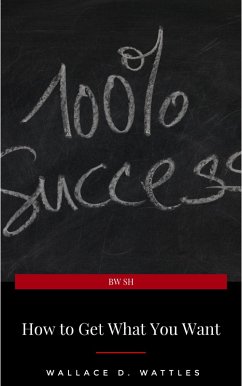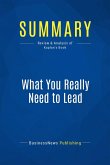Learn the real secrets to living a successful life in Wallace D. Wattles' precursor to "The Science of Getting Rich" series. This practical guide is short and to-the-point and lays out the basic concepts of self-improvement, in a simple, easy-to-understand format that anyone can follow.
Dieser Download kann aus rechtlichen Gründen nur mit Rechnungsadresse in A, B, BG, CY, CZ, D, DK, EW, E, FIN, F, GR, H, IRL, I, LT, L, LR, M, NL, PL, P, R, S, SLO, SK ausgeliefert werden.




